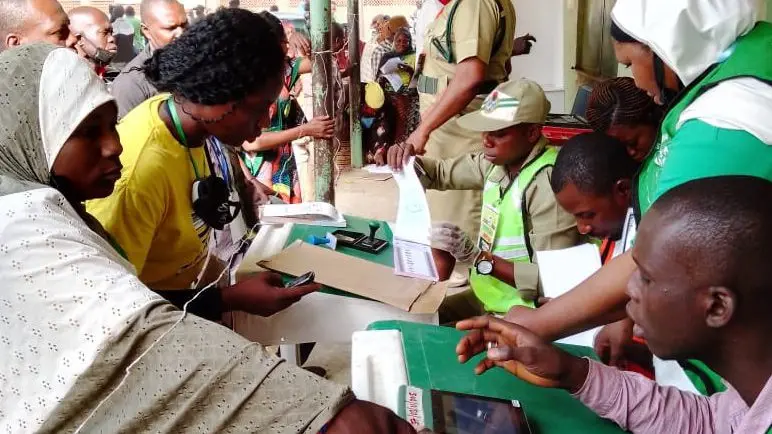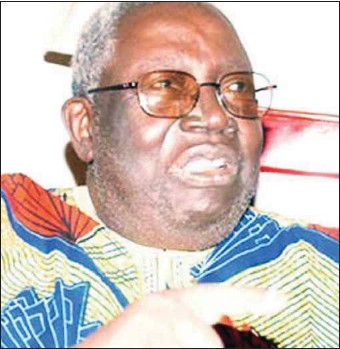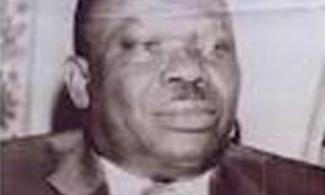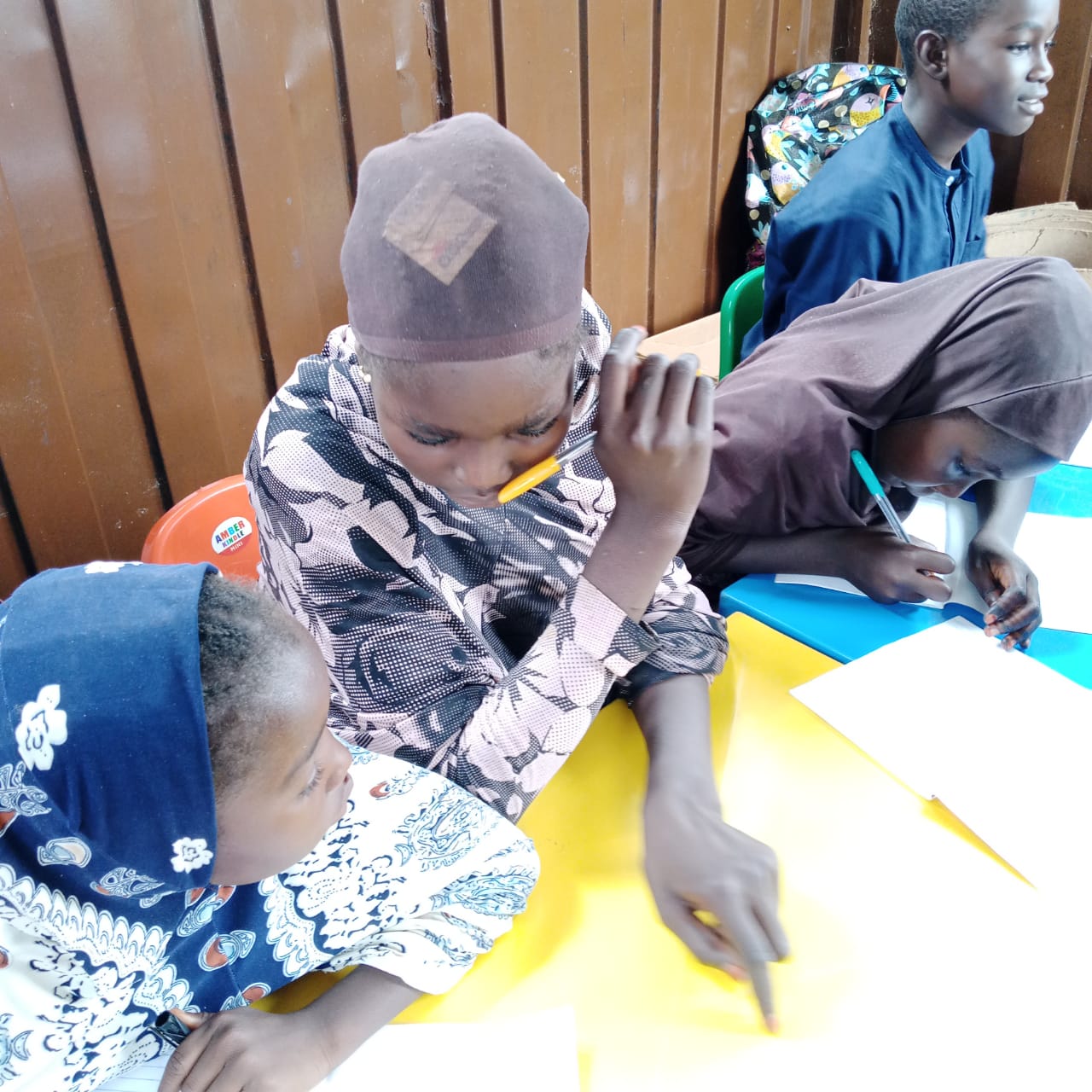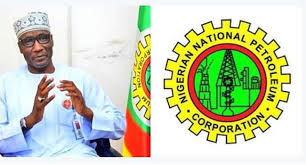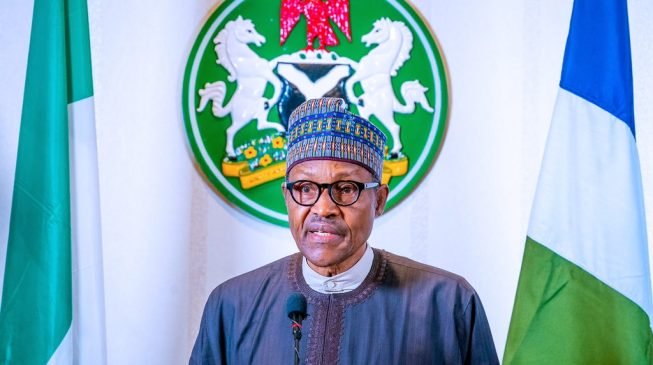Rise and fall of electoral chairmen in Nigeria (1964-2023)

The 2023 elections fell short of the promises and expectations of Nigerians, in spite the deployment of world-class and highly expensive technology. The irregularities could put Professor Yakubu Mahmood in the bracket of past electoral chairmen who failed the integrity test.
Theophilus Abbah, PhD
The Chairman of the Independent National Electoral Commission (INEC), Professor Yakubu Mahmood, has come under criticisms for the controversial conduct of the 2023 elections, which fell far short of ‘the best election ever’ in Nigeria. In the presidential election, the electoral umpire’s failure to upload results from polling units granted fraudsters the opportunity to intimidate electoral officials, and subsequently to announced doubtful results resisted by opposition parties.
There was naked violence, voter suppression, carting away of ballot boxes
The governorship elections, promised to be an improvement on the presidential election, was also totally disappointing. First, there was low voters turnout, explained as a manifestation of the lack of confidence in the electoral process, but worse still, there was naked violence, voter suppression, carting away of ballot boxes, and declaration of questionable results. As it stands, the professor of history is likely going to end his career on this note, as another intellectual who presided over an electoral process that failed the people. Below are the stories of previous electoral chairmen who have disappointed Nigerians:
Eyo Esua: ‘We can’t deliver free and fair elections’
Perhaps, the most awkward but shocking episode in Nigeria’s electoral drama occurred in the 1964/1965 fire and blood elections, causing the chairman of the Federal Electoral Commission (FEC), Mr Eyo Ita Esua (1901-1973), to thrown in the towel in an unNigerian manner.
- Chairman, Federal Electoral Commission (FEC), Mr Eyo Ita Esua (1901-1973)
Unconfirmed accounts said Esua actually wrote his resignation letter, dropped it on his table, and flew back to his base in Calabar, an odd style of dumping a national assignment. Instead of formally submitting the letter to Tafawa Balewa-led federal government, Esua was said to have run away from the job, as if he was being chased away by mysterious, deadly forces. In the smoky confusion, Esua told a beleaguered nation that the FEC could not deliver free and fair elections under the chaotic political atmosphere, a confusion deliberately orchestrated by mischief-making politicians.
- Voters getting accredited to vote in the 2023 elections
As it is the practice today, governments sought for credible Nigerians, especially, those with track-record of resisting corrupt practices and impartiality, to appoint as head of electoral umpire. In the case of Esua, the Balewa-led government plugged him from labour activism; he was a founding member of the Nigerian Union of Teachers and its National Secretary from 1943 to 1964. Being a school master who led a spartan lifestyle, and from the Efik minority ethnic group in Calabar, Esua was fit for umpire in elections involving rival candidates from Hausa-Fulani, Yoruba, and Igbo dominating ethnic communities in Nigeria.
FEC could not deliver free and fair elections under the chaotic political atmosphere
As the first indigenous head of the electoral body (the 1959 elections were conducted by the British colonial government), Esua was confused at the power struggle between the Northern, Western and Eastern regions, as mutual suspicion along ethnic and religious lines took the front seat instead of political and economic ideologies for the growth and prosperity of Nigeria.In the December 1964 federal elections, there was so much electoral dispute that two members of the electoral commission dumped the job.
The election in the Western region did not hold until 1965 due to political crisis
The election in the Western region did not hold until 1965 due to political crisis. But with widespread electoral malpractices and violence, Esua admitted that the Commission could not deliver a free and fair election, and left the job. The electoral crisis in the Western Region dovetailed into the 1966 coup d’etat and the unfortunate three-year Nigerian Civil War.
Michael Ani: Mathematical electoral chairman
After the Nigerian Civil War and about a decade of military rule, an accomplished and retired civil servant, who was found worthy of crucial tasks by the military governments, Michael Ani (1917-1985), got the plum job as Chairman of the Federal Electoral Commission (FEDECO) in 1976. The military Head of State, General Olusegun Obasanjo, appointed him to that position on the basis of his experience and credibility. Michael Ani’s electoral commission conducted the highly contested 1979 general elections.
- Eme Awa Photo credit: Pressreader
Like the 2023 elections, the voting pattern was along regional and religious lines. Shehu Shagari’s National Party of Nigeria (NPN) was dominant in the North; Obafemi Awolowo’s Unity Party of Nigeria (UPN) received more votes in the West, while Nnamdi Azikiwe’s Nigerian Peoples Party (NPP) got more votes in the East. In the election, Shagari polled (5.6 million); Awolowo (4.9 million), and Azikiwe (2.8 million). With this polarization, Ani’s electoral umpire, made up of 24 electoral commissioners, needed to interpret a clumsy section of the electoral law, which said, “a candidate must obtain one quarter of votes cast in at least two thirds of the states of the federation.” Ani declared Shagari as president-elect on this basis.
Not many people believed the electoral commission got the answer of the arithmetic correct; it was perceived that the formula Ani used to decide the winner was influenced by the Obasanjo military government’s design to shift political power to the North, by using the electoral body to anoint Shagari as winner. There were 19 States. Two-thirds meant that the winner must produce a minimum of 25% in 12.66 states. Shagari met the threshold in 12 states and 19.9% of votes in Kano State, which was short of 12.66 states. Chief Awolowo argued that the winner must secure 25% of votes in 13 states, approximating .66% to a whole number. The case went up to the Supreme Court, which affirmed Shagari as winner of the election. However, on his part, the perception that Ani’s arithematic was biased did not erase until his death in 1985.
Not many people believed the electoral commission got the answer of the arithmetic correct
Justice Victor Ovie-Whisky: Tenure marred by unlikely NPN victory in Ondo State
- Chairman Federal Electoral Commission (FEDECO) 1980-1983
In 1980, shortly after assuming office as president, Shagari appointed Justice Victor Ovie-Whisky (1923-2012) as FEDECO chairman. A former Chief Judge of the defunct Bendel State, Ovie-Whisky was perceived to be non-political and very upright. However, the election conducted under his watch in 1983 was marred by a lot of irregularities, and electoral officials were accused of malpractices in favour of the ruling NPN, to the point that journalists suspected water passed under the bridge in the electoral process.
The election conducted under his watch in 1983 was marred by a lot of irregularities
Like the 1965 election where an alliance between a section of the West and a dominant political party in the North caused serious violence, the 1983 electoral crisis was caused by the unlikely NPN victory in Ondo State, a traditional stronghold of the Unity Party of Nigeria (UPN). The FEDECO declared the NPN candidate, Akin Omoboriowo, as winner in the governorship election. The unaccepted result ruptured peace in the state, leading to violent protests, looting, killings, arson, and anarchy.
The unaccepted result ruptured peace in the state
In that election, FEDECO, headed by Ovie-Whisky was accused on using ‘federal might’ to rig the election in favour of Omoboriowo, a former deputy governor under UPN, who abandoned Governor Michael Ajasin, to grab the NPN governorship ticket. The people could not endure that an NPN candidate would win a governorship election in the West, a stronghold of Chief Awolowo – an arch political rival to Shagari. The turbulence generated by the election did not settle before the military sacked the Shagari government about five months after, on December 31, 1983. Ovie-Whisky said about the 1983 elections: “We did not expect to be perfect”.
Eme Awa: Quit under controversial circumstances
Eme Awa (1921-2000) was a famous professor of Political Science, plugged from the University of Nigeria, Nsukka, by President Ibrahim Babangida in 1987 to conduct the elections that would see to the transition of power from the military to a civilian regime. The professor’s first major challenge was the conduct of local government elections which was marred by poor planning and malpractices.
Awa resigned from the position two years
There were unmanageable crowds at many polling units and irregular voter registers, making it difficult for voters to locate their polling units. Awa resigned from the position two years after, purportedly due to disagreements with IBB, but it was not clear what that disagreement was all about. In his memoir, published posthumously, Awa claimed some members of the Armed Forces Ruling Council (AFRC) ganged up against him over the outcome of the local government elections, discrediting the process due to the chaos in some three hundred out of over 5,000 polling stations across the country, and forced him to resign as NEC chairman. The tone of his memoir, entitled ‘My Journey to Nigeria,’ echoed the bitter experience he had with the military and political class during his tenure as FEDECO chairman.
Humphrey Nwosu: June 12 and Option A4 electoral chairman
Professor Humphrey Nwosu, a protege of Professor Awa, took over as the National Electoral Commission (NEC) chairman in 1989, appointed also by President Babangida. To his credit, Nwosu implemented the now famous Option A4 and Open Ballot system, which were meant to test the popularity of contestants in elections, from ward to national level. Then, to ensure transparency, voters were meant to queue on rows assigned to the party or candidate of their choice before they cast their vote.
It was Nwosu who conducted one of the freest and fairest elections in Nigeria
It was, therefore, possible to predict winners in an election through the number of voters who lined up behind their party’s logos. Incidentally, it was Nwosu who conducted one of the freest and fairest elections in Nigeria – the June 12, 1993 presidential election that the late Chief Moshood Abiola of the Social Democratic Party (SDP) was acclaimed to have won. But, the process was aborted, as legal intrigues set in and the election was annulled, though Nwosu had announced the results from many states in Nigeria. The reason for the annulment of the election is still not clear, 30 years after it was cut short.
Okon Edet Uya: Electoral chairman who didn’t conduct an election:
Little is remembered about Professor Okon Edet Uya (1947-2014), but in 1993, he was appointed as chairman of the National Electoral Commission of Nigeria (NECON) by President Babangida to conduct another presidential election, slated for March 1994, after the annulment of Chief Abiola’s election. However, the 1993 political crisis created serious confusion and an atmosphere that made it impossible for the conduct fresh elections. General Sani Abacha later swept away the interim government of Chief Ernest Shonekan. The new military government sacked Uya as chairman of the electoral body. He returned to the University of Calabar as Deputy Vice-Chancellor and later Acting Vice-Chancellor.
Karibi Dagogo-Jack: Umpire during infamous ‘Abacha-for-president’ era
Under General Sani Abacha, Chief Summer Karibi Dagogo-Jack held sway as the powerful chairman of NECON. He was not a stranger to the electoral body because Dagogo-Jack was a member of the Humphrey Nwosu-led team. However, his credibility diminished when he registered five political parties, led by obscure politicians, who would later adopt General Abacha as their presidential candidate in an election that never held. The parties included United Nigeria Congress Party (UNCP); Congress for National Consensus (CNC); Democratic Party of Nigeria (DPN); National Centre Party of Nigeria (NCPN); and Grassroots Democratic Movement (GDM).
The fact that Dagogo-Jack was part of the infamous Abacha regime affected his image
Though the parties adopted Abacha as their presidential candidate, Dagogo-Jack did not conduct the election before Abacha’s demise in 1998. However, he conducted local council and National Assembly elections. The fact that Dagogo-Jack was part of the infamous Abacha regime affected his image.
Justie Ephraim Akpata: Conducted elections questioned by former US President Carter
Justice Ephraim Omorose Ibikun Akpata (1927-2000), a Justice of the Supreme Court, was the first chairman of the Independent National Electoral Commission (INEC), appointed in 1998 by then Head of State General Abdulsalami Abubakar, to conduct elections that ushered in the Fourth Republic. In an election, keenly contested by the Peoples Democratic Party (PDP), which fielded Olusegun Obasanjo, on one hand, and the joint ticket Alliance for Democracy (AD) and All Peoples Party (APP), that had Chief Olu Falae as presidential candidate, Obasanjo won the votes by over 60%. However, the election was not as clean as expected for a country that yearned for a credible democratic system, after fighting military dictatorship for almost five years.
The election was not as clean as expected
Reports on later elections were more critical, describing irregularities including inflated vote returns, ballot box stuffing, altered results, and disenfranchisement of voters. A former United States President Jimmy Carter wrote a letter to Justice Akpata, saying, “There was a wide disparity between the number of voters observed at the polling stations and the final results that have been reported from several states. Regrettably, therefore, it is not possible for us to make an accurate judgment about the outcome of the presidential election.” To his glory, Nigeria successfully conducted a democratic election which produced a president after about 15 years of military rule. But Justice Akpata may not have been very proud of the process that produced the Obasanjo presidency.
Abel Guobadia: Caught up in do-or-die power struggle
After the death of Justice Akpata in 2000, Dr Abel Guobadia (1932-2011) was appointed in his place in May 2000. Sir Guobadia conducted the 2003 election that returned the PDP’s candidate Obasanjo as president until 2007, another four-year period. The election was passed by the government and Nigeria’s foreign allies as free and fair, ignoring malpractices. In that election, General Muhammadu Buhari of the APP, in his first attempt at returning to the top job in Nigeria, lost to Obasanjo.
The violence and climate of intimidation facilitated widespread fraud
It was the Human Rights Watch that provided an alternative report in its June 1, 2004 edition. It said, “In April and May 2003, at least one hundred people were killed and many more injured during federal and state elections in Nigeria. The majority of serious abuses were perpetrated by members or supporters of the ruling party, the People’s Democratic Party (PDP). In a number of locations, elections simply did not take place as groups of armed thugs linked to political parties and candidates intimidated and threatened voters in order to falsify results. The violence and climate of intimidation facilitated widespread fraud, invalidating the results of the elections in many areas. Nevertheless, the elections were hailed as peaceful by Nigeria’s President Olusegun Obasanjo, who was re-elected, and were widely praised by foreign governments, including Nigeria’s key foreign allies. The 2003 elections were significant for Nigeria as the country’s first sustained transition from one civilian government to another.”
After completing his five-year tenure in May 2005, Guobadia retired from his position as Chairman of INEC, the first to do so in the history of electoral commission in Nigeria.”
Maurice Iwu: He conducted elections faulted by winner
If any Nigerian who is politically active is asked to mention the names of electoral chairmen Nigeria has had, it is most likely that Maurice Iwu would be mentioned among the first three of them. Appointed as INEC commissioner from Imo State in 2003, Professor Maurice Mmaduakolam Iwu, succeeded Guobadia as chairman of the commission in 2005. The tenure of the professor of Pharmacognosy was, however, very controversial.
His rancorous tenure made him an unforgettable INEC chairman
First, Iwu drew the ire of civil society organizations when he told the world that international monitors would not be permitted during the country’s elections. His rancorous tenure made him an unforgettable INEC chairman. He was head of INEC during the 2007 elections, said to be so contaminated with a lot of irregularities that politicians demanded Iwu’s resignation. Like an irony, even the late President Umaru Yar’Adua who benefitted from the election acknowledged that the process that brought him to power was flawed. As a way of repairing the electoral mess, Yar’Adua had to set up the Justice Mohammed Lawal Uwais electoral reform panel in 2007, shortly after he was sworn-in as president.
Iwu became an epitome of whatever could go wrong in an election in Nigeria
Though the reform panel was a subtle indictment on Iwu, a sign that government had lost confidence in him, he failed to resign from his position as INEC chairman, until 2010 when President Goodluck Jonathan sent him packing. Unfortunately, Iwu became an epitome of whatever could go wrong in an election in Nigeria.
Attahiru Jega: Introduced electronic accreditation through card reader
Professor Attahiru Muhammadu Jega, who was a member of the Justice Uwais Electoral Reform panel, succeeded Iwu as INEC chairman. President Goodluck Jonathan appointed Jega to that position in June 2010, barely a year to the 2011 general elections. Jonathan claimed that he appointed Jega based on recommendations that the professor of political science was fair-minded, upright and could not be manipulated.
The issue of power rotation between North and South became a heated debate in Nigeria, challenging Jonathan’s decision to contest in the 2011 election, when the North felt it should produce the next president as Yar’Adua did not complete his term before his demise.
However, the first election under Jega as chairman in 2011 was a significant improvement on previous elections, but marred by violence that led to the death of over 800 persons. It was keenly contested, but a cross-section of Nigerians believed Jonathan actually won. Ahead of the next election in 2015, Jega’s INEC introduced electronic card reader, a technology used to accredit voters before they were given ballot papers to vote. The device significantly reduced ballot box stuffing, a constant fraud that tainted previous elections. In the 2015 election, Muhammadu Buhari of the All Progressives Congress (APC) challenged Goodluck Jonathan of the PDP. Though keenly contested, Jonathan took a step unprecedented in Nigeria’s political history, to congratulate Buhari when it was obvious the former head of state had won. The 2015 elections were acclaimed to be credible, though not without some flaws. While the ovation was still high, on June 30, 2015, ProfessorJega retired from his position as chairman, and handed over the Commission to the next most senior Electoral Commission.
Read also… Kogi Primary election: Ododo’s ticket hangs in the balance
Dr Abbah, a Fellow of the Chartered Institute of Forensic Investigation and Fraud Examiners of Nigeria, lives in Abuja. Follow him @theophilusa
The Insight Report
Nigeria Coverage


